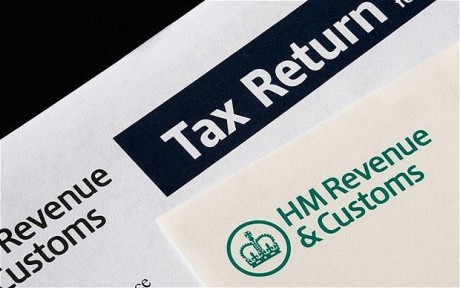

Self assessment – it’s time!
If you have not already done so, now is the time to think about the deadlines for filing your 2011 tax return and paying your tax.
Preparing your return
Whether you are filing your return yourself or compiling information for your accountant, the paragraphs below set out some of the more common information that you (or your accountant) will need to complete your 2011 return, which covers the tax year ended 5th April 2011 (6th April 2010 – 5th April 2011):
Business income:
If you are a sole trader or in a partnership you will need the accounts which ended during the tax year 2010/11, for instance accounts for the year ended 31 December 2010 or for the year 31 March 2011.
If your business started recently or ceased during the tax year the position will be more complex and your accountant will be able to advise you further.
If you trade through your own limited company, or are someone’s employee, then you will need your P60 and P11D for 2010/11, showing your earnings and any benefits/expenses. Company dividends paid to you in the year ended 5 April 2011 will also be included in your 2011 return.
Unearned income:
Unearned income received between 6th April 2010 and 5th April 2011 will be shown on your 2011 return, whether from UK or overseas sources – e.g. interest, dividends, rental income (less associated expenses) and pension income, so you will need statements, tax certificates and dividend vouchers. Where an investment is held jointly, your share of the income is shown.
If you are non-UK domiciled then the new regime for non-domiciled individuals will be relevant to you – you chose whether to pay UK tax on your worldwide income or whether to be taxed on the remittance basis (i.e. only on that overseas income which you have brought to the UK) in which case you may be required to pay a £30k “remittance basis charge”. This is a complex area and your accountant will be able to provide more details.
Capital gains:
Details of the sale of capital assets – e.g. property, investments – during the tax year will be needed for your return i.e.: the cost and sale proceeds, and any associated expenses.
The sale of your home will generally be exempt from capital gains tax as long as the property was used as your main residence throughout the time you owned it, so any gain (or loss) will not be included on your return.
Other matters:
Tax relief is given for charitable payments under gift aid or covenants made in the tax year and for pension contributions paid by you; investments qualifying under the Enterprise Investment Scheme will also reduce your tax liability.
Filing your return
The deadline for the submission of paper returns has already passed, but for online filing of returns the deadline for the 2011 tax return is 31 January 2012.
If you are filing your return online yourself, the first step is to register at www.hmrc.gov.uk for online services. You will then receive, by post, confirmation of your User ID and an activation PIN needed to get started. Once you have activated your account you will be able to prepare and submit your return online.
Paying your tax
As well as being the deadline for the submission of your 2011 return, 31 January 2012 is also the deadline for payment of your tax liability for 2010/11 – if you have already made payments on account towards the year, you may have to pay a balancing payment; if your payments on account exceed your actual liability the overpayment will either be refunded to you or set against future payments. If you are required to make payments on account towards your 2011/2012 liability, the first of these will also be due on 31 January 2012.
It is worth considering at this stage whether the funds you will need to pay the tax will be readily available, in case it is necessary to give notice on an account or otherwise make funds available for the payment date.
Interest and penalties
If your return is submitted after 31 January 2012, you will be charged a £100 penalty; where a partnership return is submitted late, the penalty is £100 per partner. Penalties increase steeply if the return is more than 3 months late.
Interest will also be charged from 1 February 2012 on any unpaid tax (the current rate is 3%, but could change before this date). If any part of your balancing payment remains unpaid as at 28 February 2012, a surcharge of 5% of the unpaid tax will be added to your liability, with a further 5% surcharge added on 31 July 2012 on any tax remaining unpaid at that date.
HMRC enquiries
If you submit your return before the deadline, H M Revenue & Customs have 12 months from the date after your return was submitted to raise an enquiry into it. However, if your return is submitted late, HMRC’s period for raising an enquiry is extended.
Disclaimer
Umesh Modi BA ACA, is a Chartered Accountant and Tax Advisor, and a partner at Silver Levene (Incorporating Modiplus+). He can be contacted on 020 7383 3200 or umesh.modi@silverlevene.co.uk

